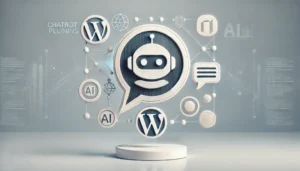Introduction to AI in SEO
Search Engine Optimization (SEO) has drastically evolved over the years. What once relied on manual keyword research, backlinking, and content structuring has now transformed into a more automated, data-driven process thanks to Artificial Intelligence (AI).
Search engines like Google are now leveraging AI-based algorithms like RankBrain, BERT, and MUM to understand search intent, analyze content relevance, and provide more accurate search results. On the other hand, marketers and SEO professionals are using AI-powered tools to optimize content, improve search rankings, and automate repetitive tasks.
In this guide, we’ll explore how AI is transforming SEO, from keyword research and content creation to technical SEO and automation. You’ll also discover AI-powered tools, strategies, and the future of SEO in the age of artificial intelligence.
How AI is Transforming SEO
Artificial Intelligence in SEO is reshaping the way search engines interpret content and how websites are optimized. Here are the key areas where AI is making an impact:
1. AI-Powered Keyword Research
Keyword research is the foundation of SEO, and AI tools have revolutionized the way we find relevant keywords. Traditional keyword research tools relied on historical search data, but AI-driven platforms now analyze:
- User search intent (informational, navigational, transactional)
- Semantic search relationships (LSI keywords)
- Competitor keyword strategies
- Predictive analytics for emerging trends
AI Tools for Keyword Research:
- Semrush Keyword Magic Tool – Uses AI to group and suggest keywords based on intent.
- SEO.ai – AI-powered keyword clustering for better targeting.
- BrightEdge – Uses AI to analyze search intent and keyword performance.
2. AI in Content Optimization
AI helps create and optimize content for better rankings, engagement, and conversions. AI-driven tools analyze search trends, readability, sentiment, and SEO best practices to generate high-performing content.
How AI Enhances Content Optimization:
- AI-Generated Content: Tools like GPT-4 and Jasper AI assist in generating SEO-friendly content based on target keywords.
- Content Gap Analysis: AI identifies missing content opportunities compared to competitor articles.
- Semantic Search Optimization: AI enhances content relevance by suggesting LSI keywords and structured data.
- Meta Tag Optimization: AI tools like Surfer SEO and Clearscope recommend optimized title tags, meta descriptions, and headings.
Example: If a user searches for “best SEO tools for beginners”, AI helps rewrite content headlines and descriptions to match user intent and increase CTR (Click-Through Rate).
3. AI in Technical SEO
Technical SEO is complex, but AI has simplified many optimization processes, making websites more search-engine friendly.
How AI Improves Technical SEO:
- AI-driven Site Audits: AI tools like Screaming Frog and Sitebulb detect crawl errors, duplicate content, and missing metadata.
- Schema Markup Automation: AI-powered schema generators help websites implement structured data (FAQ, reviews, how-to, etc.)
- Page Speed Optimization: AI improves Core Web Vitals by detecting slow-loading elements.
- AI-Based Mobile SEO: Google’s AI evaluates mobile-friendliness, responsive design, and accessibility.
4. AI in Link Building
AI is helping SEO professionals automate and improve link-building strategies. AI-powered tools assist in:
- Backlink Analysis: AI identifies high-authority backlink opportunities.
- Competitor Link Research: AI analyzes where competitors are getting links from.
- Automated Outreach: AI helps personalize email outreach campaigns for link acquisition.
AI Link-Building Tools:
- Majestic SEO – AI-powered backlink database
- Ahrefs – AI-driven link-building analysis
- BuzzStream – AI for outreach and relationship-building
Tip: AI helps detect toxic backlinks, ensuring websites avoid Google penalties.
5. AI in Voice Search Optimization
With the rise of voice assistants like Google Assistant, Siri, and Alexa, AI plays a critical role in voice search optimization.
How AI Helps with Voice Search SEO:
- Conversational Keywords: AI detects natural language queries like “What is the best SEO tool?” instead of traditional keywords like “best SEO tools”.
- Long-Tail Keywords: AI prioritizes question-based and long-tail searches.
- Featured Snippets: AI identifies content that can be optimized for “Position Zero” in search results.
Example: If a user asks, “How does AI improve SEO?” – AI-powered SEO tools optimize content for featured snippets, voice search answers, and natural language processing (NLP).
6. AI and Local SEO
Local businesses benefit from AI-driven local SEO strategies.
AI for Local SEO Includes:
- Google My Business Optimization: AI enhances business listings, reviews, and location-based keywords.
- Automated Local Citations: AI tools like BrightLocal help businesses manage NAP (Name, Address, Phone Number) consistency.
- AI-Driven Chatbots: Improve customer engagement, support, and conversions for local businesses.
Example: If a user searches for “Best digital marketing agency near me”, AI helps improve local search visibility using geolocation data.
The Future of AI in SEO
AI’s role in SEO will continue to grow, with predictive search algorithms, real-time ranking adjustments, and AI-assisted SERP analysis.
Future AI Trends in SEO:
- More AI-powered personalization in search results
- AI-based content generation with natural storytelling
- AI-integrated voice and image search SEO
- Better search intent detection using machine learning
Will AI Replace SEO Professionals?
No, but it will enhance SEO strategies by automating repetitive tasks while allowing marketers to focus on creativity and strategic planning.
FAQs About AI in SEO
1. What is AI in SEO?
AI in SEO refers to the use of artificial intelligence and machine learning algorithms to analyze search trends, optimize content, automate SEO tasks, and improve rankings.
2. How does AI help with content optimization?
AI-powered tools suggest SEO-friendly content structures, keyword placement, readability improvements, and competitor analysis to create high-ranking articles.
3. Can AI completely automate SEO?
No. While AI can automate keyword research, link-building, and audits, human creativity and strategy are still essential for SEO success.
4. What are the best AI SEO tools?
Popular AI-powered SEO tools include:
- Semrush (Keyword Research & SEO Analysis)
- Surfer SEO (Content Optimization)
- BrightEdge (AI-Driven SEO Analytics)
- Clearscope (AI-Powered Content Optimization)
5. How will AI impact SEO in the future?
AI will further enhance search intent understanding, real-time ranking factors, predictive analytics, and voice/image search optimizations.
Final Thoughts
AI has revolutionized SEO by making processes more efficient, data-driven, and automated. Businesses that embrace AI-powered SEO strategies will stay ahead in the highly competitive digital landscape.
Key Takeaway: AI doesn’t replace SEO professionals—it enhances SEO efficiency, strategy, and results.
Now is the time to integrate AI into your SEO efforts to dominate search rankings!


![Read more about the article Top 5 eCommerce Website Developers in Chennai [2026 List]](https://sanishtech.com/wp-content/uploads/2025/02/top-ecommerce-website-developers-in-chennai-1-300x200.webp)

